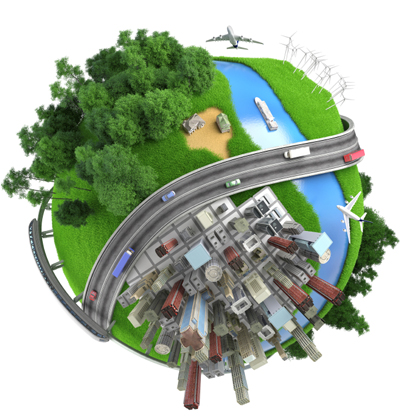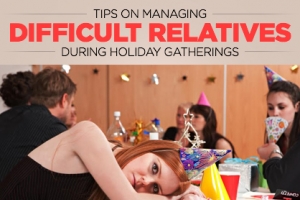Travel, sustainable style: A world of difference
Forget about that stereotypical touristy cruise through the Bahamas. Today’s new way to travel is sustainably. Ethical consumerism is a multi-billion-dollar industry, and it is spilling over into tourism, with increasingly more people making ethical choices about where and how they travel.
“Tourism is always seen as what can you as a traveler get out of the destination,” Richard Hammond, CEO and founder of Greentraveller.com, a website that promotes eco-travel, said, “but a more enlightened version is what can the destination benefit from you traveling there.”
Responsible travel is broadly defined as travel that takes into account environmental, social, cultural and economic issues. Ethical traveling means using your money to actually benefit your destination, whether by channeling cash into local economies, doing voluntary work or choosing to travel by train, which is less polluting than flying. Travel — when responsible — can minimize waste, conserve energy, preserve local culture, empower people and conserve resources, Linda Chew, editor of Travelanthropist, an online destination for philanthropic travel, reports.
“Responsible travel is a more enjoyable and authentic way to travel,” said Krissy Roe, spokeswoman for U.K.-based Responsible Travel, which offers a range of socially conscious vacations. “It’s about creating better places to live in and to visit. It’s also about holidays that establish deep connections that benefit local economies and preserve cultures against the potential harms of tourism.”
Even one trip can reap benefits. Hammond described a recent vacation to Ecuador, during which he stayed with an indigenous tribe of hunter-gathers. The trip was sustainable from start to finish, as the CEO used a local tour operator. Hammond not only had a fantastic time, he also learned the tribe’s way of living, and his tourist dollars contributed to the community, helping the tribespeople cover their medical and educational expenses.
Sustainable tourism developed as a reaction to the destruction traveling typically causes.
“The increase of tourism around (the) world brought about development at the expense of local communities,” Roe said. “As a result, the idea of sustainable travel developed to try to protect these tourist destinations from being ‘exploited’ for tourism.”
Responsible Travel has sold more than $100 million worth of vacations, with revenue going toward job creation, childhood education, conservation of fragile habitats and other socially conscious projects. The UNWTO estimates that sustainable tourism today totals 11.4 percent of international consumer tourism spending.
“(Socially conscious travelers) are aware of the choices they make and the impact those choices can have, but more than anything, they want to get the most out of their holiday. They want to discover the undiscovered and have a really authentic experience, whether that means staying at a renovated farmhouse in Italy or taking a walking safari in Africa,” Roe said.
Hammond believes the most important part of green travel is the mode of transportation. Airplane travel emits high quantities of carbon dioxide, emissions that could be greatly reduced by taking a train or boat instead. Hammond estimates that just one long-distance international flight emits five to six tons of carbon, whereas the average person creates about three tons of carbon emissions per year.
“People can be very carbon-minded throughout the year in terms of walking to work or buying green goods and then go on holiday and forget about it, and in that one holiday, they fly to the other side of the world, and all the savings they’ve made throughout the year have been obliterated,” Hammond noted.
However, ensuring that your trip is socially and environmentally conscious goes beyond your means of transportation. When choosing lodging, you should first note whether or not the hotel benefits its community: Does it employ local people and do locals own it? When it comes to buying your souvenirs, eschew the hotel lobby or airport gift shop in favor of perusing local markets.
“Looking at where you do your purchasing makes a huge difference to the market seller and the people who live in those areas that you are visiting,” Hammond explained. “It might seem very inconsequential, your one trip, compared with the enormity of the travel industry, but your one trip could make a huge difference to one market seller.”
Responsible travel doesn’t have to be about sacrifice. In fact, in many cases, being sustainable can enhance your holiday. As Chew points out, authentic local travel experiences can be an unforgettable adventure.
“People are after more memorable travel experiences while respecting the local culture and people,” she explained.
She predicts great growth in the responsible travel industry, especially in Southeast Asia and Latin America, as ethical travel becomes increasingly mainstream, and more and more companies are compelled to offer sustainable options.
Chew believes that people far and wide have begun to re-evaluate their priorities when it comes to travel, causing an underlying shift in the industry. “The focus now is on relationships, health, spirituality, self-improvement, the environment and social responsibility, with ‘experience first, destination second,’” Chew revealed.
Despite the global economic crisis, Hammond reports that green travel is booming.
“A lot of people thought the downturn in the economy would affect green travel. It hasn’t at all,” Hammond said. “I think we’ve seen that because people are being really careful about how they spend their money, they are looking to see how much further that money can go and are being much more thoughtful about their trip and as a result are considering some other options.”
Tagged in: lux exclusives, travel, eco, green, sustainable, tourism, responsible,

Purple Neon/LadyLUX via istock



